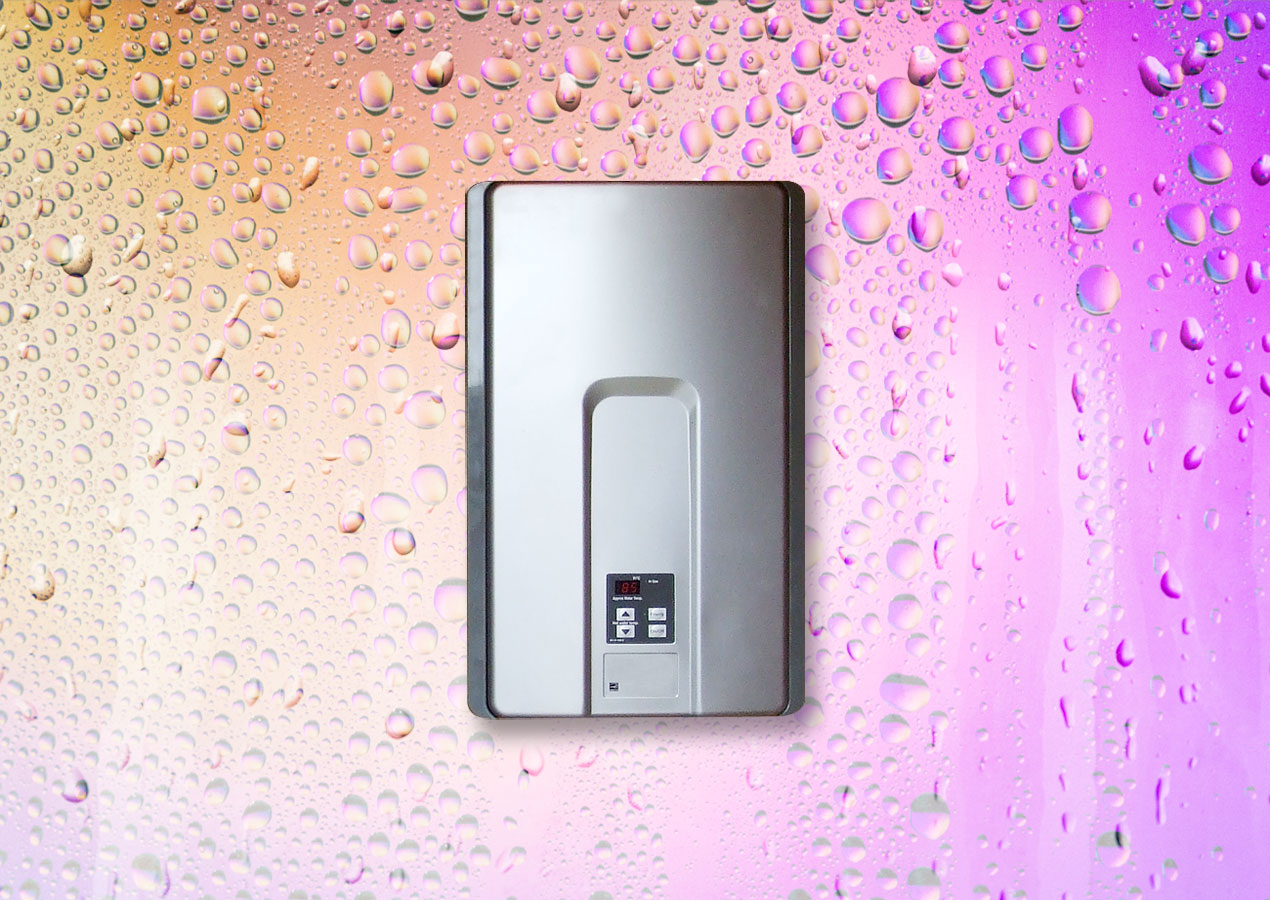
16 Feb Should You Get a Tankless Electric Water Heater in Hawaii?
Are you tired of losing space in your home, basement or yard to your water heater and are thinking about switching to tankless version? While they are not found as often in households, tankless water heaters have been seeing a growth in popularity in recent years as more and more homeowners make the jump. However, expectations on the subject need to be tempered before residential homeowners make the switch from tank to tankless, so let’s talk about some of the unforeseen costs and expenses that arise when choosing a electric-powered tankless water heater.
What is an Electric Tankless Water Heater?
First off, what is an electric tankless water heater, and how do they work? Compared to your run-of-the-mill water heater, which keeps 40 to 50 gallons of water in an insulated holding area, that is then heated and kept ready until the water is used by the household, a tankless water heater—also referred to as an “on-demand unit”—ignites a small burner in the unit that the water passes through, heating it on demand—hence the name. There are both gas and electric versions of tankless water heaters, something we’ll be touching on later in the piece.
Costs, Power, and More?
On the surface, you may think that going with an electric tankless water heater is a no-brainer. Saving space by being able to put the unit in nooks and crannies of your home would be a blessing for local homeowners with limited square footage. However, there are real downsides to owning an electric tankless water heater that you have to consider.
High Power Amount Needed
The biggest drawback to owning an electric tankless water heater is that for most residential homes, you won’t have the amps to power it. “The largest electric tankless water heater you can get right now can only make you four gallons of hot water a minute and it draws 150 amps of power, which is a ton,” says John Sorensen, a water heater specialist from PACE Supply. “There’s no way most residential homes have that amount of power to spare. It isn’t efficient.” Sure, you could hire an electrician to rewire your home’s power to supply you with enough amps for the unit, however the cost of that—in addition to the installation and price of the tankless water heater—would be too high for most homeowners.
Better For Homes Being Built, Not Existing Homes
There is a place for electric tankless water heater, however it would likely be in a very small single bath dwelling that is being built with having an electric tankless unit in mind. With most existing homes, adding one on—especially to replace a tanked unit—simply won’t work.
Home Occupancy a Major Factor
Home occupancy also plays a major role in deciding whether or not an electric tankless unit would be viable. “A lot of the times, I’ll ask, how many people live in your home? Are there five people who live there? If so, that ain’t gonna work,” says Sorensen. “Is there just two people? Then we might be able to make it work with a smaller unit that draws less power, as long as the residents know not to try and do the laundry if someone’s in the shower.”
Electric or Gas?
While electric-powered tankless water heaters are likely too inefficient and costly for most homes, gas-powered units are still worth considering. Drawing way, way less power from your home and generating more gallons of hot water per minute than their electric counterparts, gas tankless water heaters are more efficient—however they are still expensive to install, especially with the issue of having proper ventilation.
Venting an Important Consideration
“Venting is one thing nobody really plans for,” says Sorensen. “They don’t know what type of venting it takes, and how expensive that venting is. Most tank type water heaters have a very cheap style of venting, while these gas-powered tankless heaters are not all the same. A lot of the high efficiency condensing tankless water heaters are vented with PVC, which is more affordable, but if you can’t go high efficiency due to the location of your water heater, you’re down to stainless steel venting, which is extremely expensive.”
Hybrid Electric Water Heaters
If you’re looking for the best bang for your buck, and don’t mind keeping the tank around, Sorensen recommends using a hybrid-electric tank water heater, which will get you the most hot water for the dollar.
535 Plumbing
If you live on Oahu and are looking to make the switch to a hybrid-electric water heater, choose 535 Plumbing for the job! Our team of professional Oahu plumbers are highly skilled and our excellent customer support representatives will work with you to schedule your appointments at a time you most convenient. Learn more and schedule an appointment by calling (808) 300-0535, or Visit Our Contact Us Page. Mahalo!


